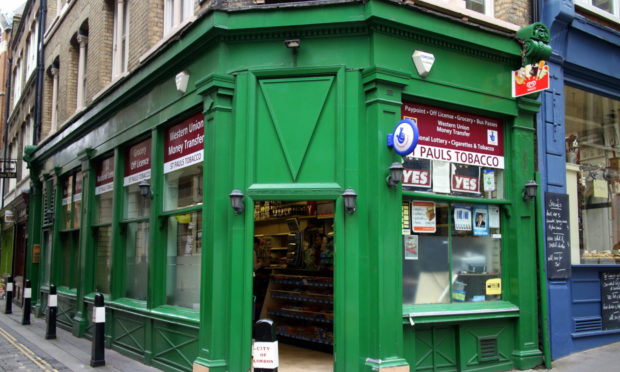Dr Pete Cheema OBE, chief executive of Scottish Grocers Federation, says today’s convenience stores are sophisticated retail outlets providing 20 to 30 different services.
The corner shop. It is a cornerstone of popular culture in general and popular TV shows in particular, the most familiar one almost certainly being the classic BBC sit-com Open All Hours, which ran for four series between 1976 and 1985.
Seen as being warmly familiar and providing a welcoming social hub – things which are becoming increasingly important to all of us in what are very uncertain and threatening times – the corner shop can be lifeline for many.
In truth the modern convenience store, aka the corner shop, is a sophisticated retail outlet which provides between 20 to 30 different services to customers, including click-and-collect, post office and bill payment services.
The convenience sector across the UK now has sales of £45 billion and employs almost half a million people.
Most members of the Scottish Grocers Federation are independent convenience retailers but almost all of them will in turn have a very strong relationship with one of the big Scottish wholesalers.
This means that they can offer customers a wide range of products at competitive prices. This relationship also enables convenience stores to re-stock grocery products very rapidly.
Panic buying
When the panic buying storm broke over the big supermarkets in the early months of the coronavirus pandemic, this was something which customers noticed and responded to very positively.
The “just-in-time” stock control system in convenience stores – which is increasingly being facilitated by technology – meant that, generally, convenience stores did not suffer from empty shelves.
The traditional view of the corner shop, however, does touch on something vitally important to the long-term success and viability of convenience stores: a convenience store is totally embedded in the community it serves.
We know from our own research that 70% of customers know their convenience retailer well enough to have a chat with them.
And surveys consistently show that the two most valued amenities to communities are the local convenience store and a post office.
However, this familiarity means that the shop must have a good reputation amongst its customers and be seen as a valuable community asset.
Convenience retailers put a huge effort into this. Most recently this has been seen in the remarkable role they have performed in supporting vulnerable customers through the Covid-19 pandemic.
Stores have evolved massively since the “Open All Hours” era and are now the key customer-facing element of a very sophisticated supply chain. But at its core it is the connection with the customer and the connection with the community that gives the local shop such an important place in Scottish life.

